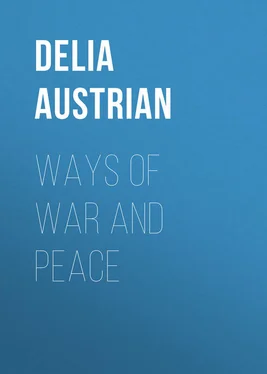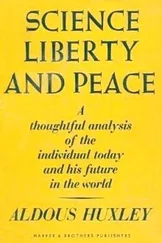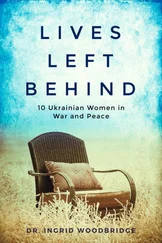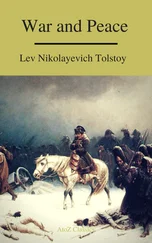Delia Austrian - Ways of War and Peace
Здесь есть возможность читать онлайн «Delia Austrian - Ways of War and Peace» — ознакомительный отрывок электронной книги совершенно бесплатно, а после прочтения отрывка купить полную версию. В некоторых случаях можно слушать аудио, скачать через торрент в формате fb2 и присутствует краткое содержание. Жанр: foreign_antique, foreign_prose, на английском языке. Описание произведения, (предисловие) а так же отзывы посетителей доступны на портале библиотеки ЛибКат.
- Название:Ways of War and Peace
- Автор:
- Жанр:
- Год:неизвестен
- ISBN:нет данных
- Рейтинг книги:5 / 5. Голосов: 1
-
Избранное:Добавить в избранное
- Отзывы:
-
Ваша оценка:
- 100
- 1
- 2
- 3
- 4
- 5
Ways of War and Peace: краткое содержание, описание и аннотация
Предлагаем к чтению аннотацию, описание, краткое содержание или предисловие (зависит от того, что написал сам автор книги «Ways of War and Peace»). Если вы не нашли необходимую информацию о книге — напишите в комментариях, мы постараемся отыскать её.
Ways of War and Peace — читать онлайн ознакомительный отрывок
Ниже представлен текст книги, разбитый по страницам. Система сохранения места последней прочитанной страницы, позволяет с удобством читать онлайн бесплатно книгу «Ways of War and Peace», без необходимости каждый раз заново искать на чём Вы остановились. Поставьте закладку, и сможете в любой момент перейти на страницу, на которой закончили чтение.
Интервал:
Закладка:
It was not until Tuesday that the first men enlisted and martial law was proclaimed. A large part of the promenade was roped off and guarded by petty officers. Nobody crossed this plot of ground under penalty of being shot.
The proclaiming of martial law was a new experience for me, so I stood behind the ropes for hours at a time, seeing the young men come to the front, take the oath and enlist. The first regiments were only boys, still unmarried, living in romance rather than actuality. But I soon decided that it was not as hard for them to bid their sweethearts goodbye as it was a little later for fathers to bid their wives and several clinging children farewell. A week later it was even harder to see the old men, many of whom had served in the war of '70 and '71, gladly come forth again to join the rank and file. More than twenty-five thousand men enlisted in a week. They ranged from nineteen to forty-five and came from all conditions of life; the richest and the poorest alike were eager to go and fight and if necessary to die for their country. They were impatient to change their civilian uniform for the earth-color uniforms. It was pathetic to see some of them hand over their old suits to their wives, for I wondered if they would ever use them again. But they seemed hopeful as they moved on, singing their favorite military strains. Each regiment had its favorite song; with one it was "Der Wacht am Rhein," with another "Deutchland über Alles."
This continued for a week, until twenty-five thousand men had been called out from Bad Kissingen and surrounding country. Most of these were farmers who had to drop their work before the harvesting of their grain. This work was turned over to women and children, while young boy scouts came and volunteered to work on the farms. The men were called into the different regiments mornings, noons and afternoons, until I wondered if it would ever stop. They marched off only to form new regiments. As I climbed the hill one day a middle-aged, kindly woman said to me in a choked voice, "I am giving everything I have in this world to this war, my husband and five sons. Four of them are to fight against France and two against Russia." She controlled her grief as she spoke, but it was not hard to see that her heart was broken. Many of the men working in our place were called out without getting a chance to tell wives or mothers goodbye, while one man confessed modestly that he was to be the father of a first child in less than two months. In a week's time the male population was so depleted that it was hard to find a man walking in town or out in the fields. The few young men left were so ashamed they had not been taken that they hastened to explain that they belonged to the Landsturm and that they would be called out during the next two weeks. That most of them went willingly is shown by the fact that in a week's time Germany had over a million in arms. When a young man was refused by one ministry of war he applied to another and did not give up until he had been refused five or six times. Even the tear-stained faces of mothers and sweethearts did not influence these young men from rallying around their flag. These German women were perfect Spartans and were glad when they had four or five sons to give to their country. They are trying to do their best to fill the gaps made by husbands and sons in homes, in the fields and in the shops, taking their positions in stores, in banks and on street cars.
In a few days these peaceful Bavarian people settled down to their daily routine. They were not surprised when France as well as Russia declared war on them, for it was what they naturally expected. But the news that England also had declared war came as a terrible shock. This news fanned the fire into a terrible flame and goaded the Germans on to a point where they felt they must lose all or win all.
Although the Americans were sympathizing with all this sorrow they had plenty of worries of their own. By half-past eight in the morning and at three in the afternoon, there were such crowds of people gathered before the small banks and ticket agents that it was next to hopeless to get in without being crushed, even if one wanted tickets or money. The Germans, Russians and English were foremost in these crowds, for the Germans felt they had to get home while the Russians or English wanted to escape being taken prisoners. Being an American, I felt that I was well protected until one morning I was stopped by a German and was accused of being a Russian. One day two of these men stopped me and I understood enough of what they were saying to know that they wanted to prove that I was a spy. Fortunately I had my passport with me, and that was enough to prove that I was an innocent American looking for friends and money instead of working with bombs.
The Americans in our sanitarium were fairly quiet until the word came that the banks were closed; at least, they would only give out money on German letters of credit. This information was aggravated by the fact that England had closed the cable in Germany. Paradoxical as it may seem, it was strange to us that the days moved on just the same, the days multiplied themselves into a week, and we had a board-bill staring us in the face with no prospect of money. I thought our host might be kind enough not to present us with a bill at the end of the week, but it came in just as usual. I was so angry that I left it there for a week without looking at it. I soon made up my mind if I could not get out of Germany the best thing to do was to bring some money into Germany.
I had some friends living in Frankfurt to whom I confided our distress. I do not know which was more difficult, keeping up a German conversation over the telephone or assuring them I was hard pressed for money. After a dozen serious conversations over the 'phone, backed up by a number of German postals, I got two hundred and fifty dollars from one and seventy-five dollars from another. I also got two letters from friends, one from Berlin and the other from Dresden, asking if I needed help, and I hoisted the signal of distress in a hurry. Only a small part of this money could be kept as a reserve fund, as we now owed two weeks' board. Fortunately the banks had opened again and our government had sent instructions to give us money on our letters of credit, using their own discretion. I had to wait all day until I could get near a bank, and then the cashier said one hundred and fifty dollars was all we needed. When I explained it was not enough he became angry and accused me of calling him names. He made a terrible fuss in his bank and for a few moments I thought he would have me arrested. The question of money was only one of the many difficulties. Germany was so excited by the presence of spies in her midst that she at times accused the twinkling stars of being bombs thrown into the air. Determined to rid her country of spies, she sent policemen accompanied by watchdogs to search the Russians and to find out the whereabouts of the others. One morning we were notified we must all present ourselves at the schoolhouse where we were to exhibit our passports or other credentials. It was really a funny sight to watch nearly two hundred thousand Russians and Americans trying to force a way into a small schoolhouse. When the work first started, the soldiers and first aides tried to arrange the throng in single, double and triple files, but after half an hour's venture the rope gave way and the people found themselves where they started. I was soon tired with the overpowering mob and went home to begin all over in the afternoon. After two hours hard work we had gone from the first step to the inner door. The actual work went more quickly, for when the recorder saw passports marked with the red seal of Washington, D. C., he was satisfied and asked few questions.
When the German mail man did not appear for a week it gradually dawned upon us that we were not getting our mail and we wanted to know the reason for this. We soon found out that if England had closed the cables Germany had closed the mail, and that we could not have our letters that were marked U. S. A. until they had been opened and read. Some of the more energetic Americans went to the German minister of war and complained. This complaint was sent on to Berlin. After a week's fuming and worrying they were told that they must go and have their pictures taken. Every one who wanted his mail had to pay fifty cents for a small, ugly-looking picture made payable in advance. They presented it at the ministry of war and only a small number were allowed through the gates at a time. The most daring of the soldiers teased the Russians about their names, and even had the impudence to tease the unmarried girls about their age. By the time they had pasted the pictures upon the papers, the funny-looking scrawl looked like certificates worthy of a rogue's gallery. After these minor details had been attended to the question paramount in our minds was: "How could Uncle Sam bring all his children home?" There was a rumor that one of our warships, "The Tennessee," was to be dispatched to the other side to deliver money and good cheer. We heard that she was also authorized to buy ships, but we wondered if ships could be bought, and, if they could be, would not the other nations raise objections. A group of successful business men in our sanitarium delegated themselves as captains and pilots for an unknown ship and began studying the map of Europe. There was a great diversity of opinion as to which way we should go if we went in a body. First they recommended Switzerland, only to find out that Switzerland had closed her gates because she feared a food famine. Then they suggested Italy, but this was vetoed because Italy is hard to reach from Bavaria and the ships sailing from Italy are very small. One of their happiest suggestions was Belgium, until they heard that Belgium had been drawn into the war against her will. I think a few recommended England, but this was promptly vetoed because England was at war and the channel was choked with mines. Strangely, no one thought of Holland. In the leisure moments they busied themselves taking up a collection for the Red Cross and sending important messages to Gerard, our ambassador in Berlin. He consoled them by saying there was no immediate danger and recommended that we send for our consul in Coburg. After patiently waiting a few more days our vice-consul appeared.
Читать дальшеИнтервал:
Закладка:
Похожие книги на «Ways of War and Peace»
Представляем Вашему вниманию похожие книги на «Ways of War and Peace» списком для выбора. Мы отобрали схожую по названию и смыслу литературу в надежде предоставить читателям больше вариантов отыскать новые, интересные, ещё непрочитанные произведения.
Обсуждение, отзывы о книге «Ways of War and Peace» и просто собственные мнения читателей. Оставьте ваши комментарии, напишите, что Вы думаете о произведении, его смысле или главных героях. Укажите что конкретно понравилось, а что нет, и почему Вы так считаете.












